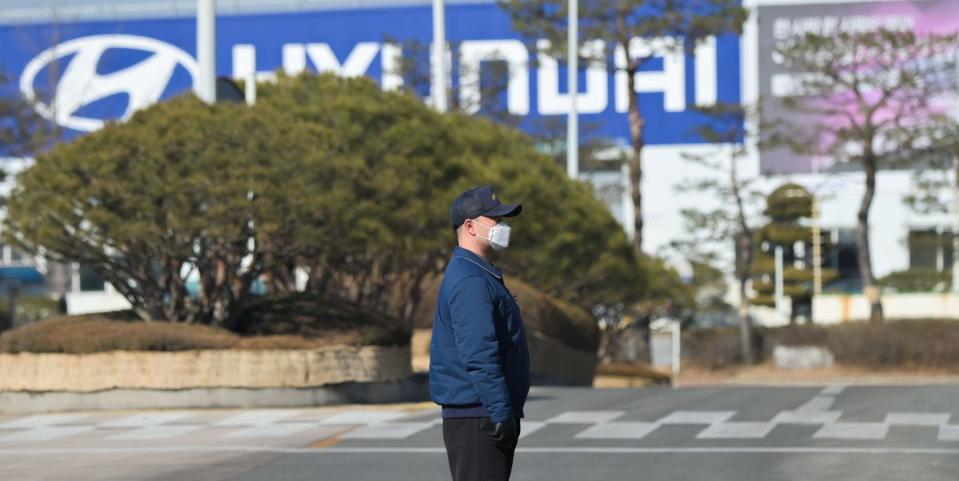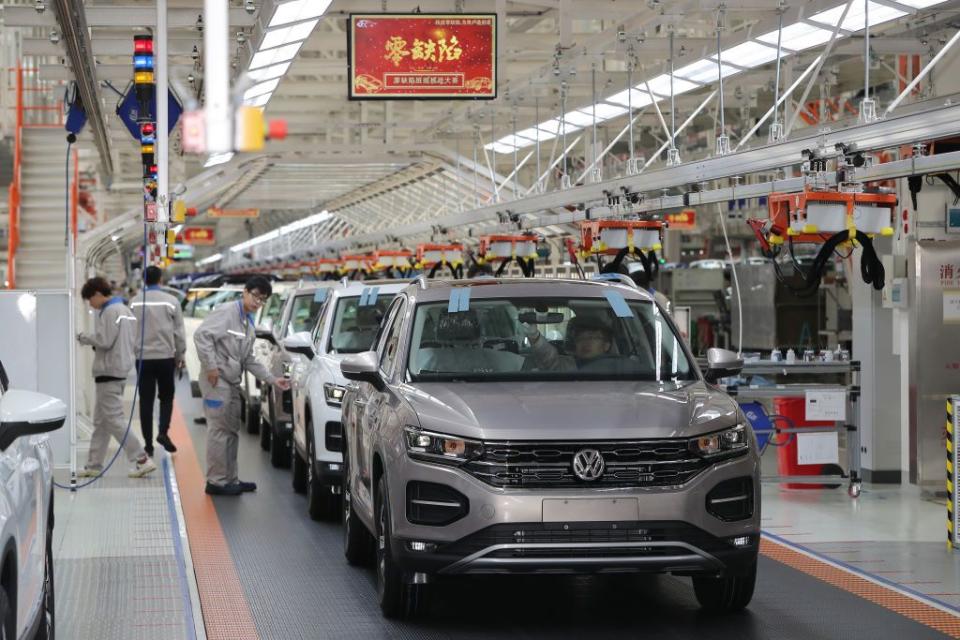Coronavirus Unlikely to Affect U.S. Car Shoppers, for Now

As dangerous as the coronavirus is, there's little chance the U.S. vehicle supply will be affected in the near term.
It's a massively different story in China, with plant shutdowns happening there and now spreading to South Korea and Europe.
This could all change, depending on how soon the virus is brought under control.
UPDATE 2/18/20: Jaguar Land Rover told Reuters that it has enough parts from China on hand to keep producing its vehicles in Great Britain for two more weeks. After that, the supply will dry up and production might need to be paused. The company has already stopped selling its vehicles in China, CEO Ralf Speth said. He was quoted as saying, "We have flown parts in suitcases from China to the U.K."
The number of coronavirus cases in China keeps climbing, with the number of infected people reaching 63,000 on Friday afternoon and the death toll almost hitting 1400. The coronavirus, now officially called COVID-19, has disrupted a huge part of China's economy, including the auto industry.
The main issue, of course, is people's health. But there's no getting around the fact that this massive outbreak will have effects beyond hospitals and doctors' offices. The Chinese government kept businesses, including many factories, closed well beyond the usual two-week shutdown for Chinese New Year. The global auto industry is already feeling the effects of those closures. This week, Fiat Chrysler Automobiles announced a pause in production at its plant in Serbia that makes the Fiat 500L. And Hyundai closed some facilities in South Korea earlier this month because it could not get enough parts from China and could faces a bigger challenge in supplying the Palisade SUV for the U.S., since that model is built in Korea. If there are further parts delays, it's not impossible that some customer deliveries could be delayed. Hyundai told Car and Driver that its parts supply chain has begun to normalize, and therefore "most of Hyundai Motor's Korean facilities are operational as of February 14."
Kia told C/D that only some of its plants in China and South Korea have been impacted by the coronavirus. The automaker builds the Soul, Sportage, and Stinger in South Korea, along with a few other models, but James Bell, Kia's director of corporate communications and social media, told us that "at this moment we have encountered no disruption in sales or availability [in the U.S.]," and he pointed out that the Telluride, Optima, and Sorento are built in the U.S., and the Forte and Rio are built in Mexico.
Some automakers, including Honda and French conglomerate PSA, pulled employees out of China, and many restricted travel to the country. The situation could be worse for companies building electric vehicles, since many battery cells are made in China, if the limits on people leaving their homes remain in place.
Getting components shipped out of China might be a problem, too. Cathay Pacific, for example, said it will reduce the capacity of its passenger and cargo flights in and out of mainland China by 50 percent until the end of March. Even if all the shipping lanes reopen, if the factories remain closed there won't be enough parts to ship to where they need to be.

Even with all of these disruptions happening in China, the industry's general "build here, sell here" production strategies mean car shoppers in the U.S. should not notice anything different in the near term. Currently, the only models built in China and exported to the U.S. are the Buick Envision and the Volvo S90. This gives automakers that did respond to our queries the confidence to sound a general all-clear, at least for now.
Automakers Think They Can Avoid Disruptions to U.S. Production
"It's too early to estimate downstream operating or financial effects of the coronavirus," T.R. Reid, Ford's director of corporate and public policy communications, told C/D. "China is obviously a huge supply source for the U.S. and the rest of the global auto industry. That said, Chinese New Year wasn't that long ago, and the national downtime is built into schedules. There's also some general slack and flexibility in the supply chain. What, where, and when things will play out from here still aren't clear."
"There really hasn't been any impact on U.S. car shoppers," said James Cain, GM's senior manager of communications. "The vehicles we build in China are nearly all sold in China. Our U.S. production hasn't been impacted so far. And with China production at OEMs and suppliers starting to restart this week, the risks of production impacts outside of China are lessening."
Nissan, VW, and Toyota all told C/D there is no reason for U.S. shoppers to worry just yet. VW, like many automakers that sell cars in North America, uses a robust supplier base from the U.S. and Mexico for the products produced there for this market. The only VW car that comes from outside the USMCA zone right now is the Arteon, and it's produced in Emden, Germany. Nissan said it is planning to restart China production at the earliest on February 17, at its Huadu and Dalian plants. Due to supply shortages of parts from China, Nissan carried out "temporary production adjustments" (meaning production was slowed, but not totally stopped) at its plant in Kyushu, Japan, on February 14 and will do so again on the 17th. "At this time, our U.S. supply chain is operating normally, and we do not anticipate any significant impact to our vehicle supply," the company said.
Volvo says it will restart production in China as soon as the situation and local government restrictions allow. Volvo expects a "negative effect" on production and sales in China, but a company spokesperson told C/D the problems should be limited. "Our outlook for the full year is continued global growth. As for production in Europe and the U.S., we have not seen any impact so far but we're working closely with our suppliers to avoid disruptions," the spokesperson said.
Even FCA remains optimistic that production of the 500L will resume shortly. "We are in the process of securing future supply of those affected parts, and production will be restarted later this month. We do not expect this change in scheduling to impact the total production forecasted for the month," the company said in a statement.
You Might Also Like

 Yahoo News
Yahoo News 